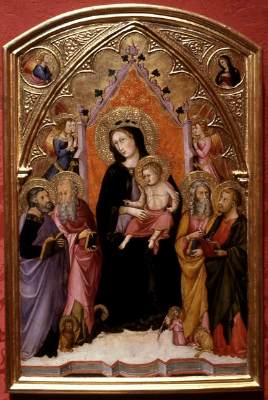A weed is a flower in the wrong spot

My heart found its home long ago in the beauty, mystery, order and disorder of the flowering earth. (Lady Bird Johnson)
On any summer day, the boulevard drive along our waterfront is edged in masses of wildflowers. A variety of sizes, shapes, species, and colors are represented. As nature sows these, the plants are mixed together seemingly without any scheme or design. Yet in God’s design they collectively harmonize as a floral carpet adorning the roadway.
At least that is one way to see it. Others, however, may see these as a mess of weeds. Both perspectives are objectively correct. The lover of this presumed-disorder may think more should, rather must, be done to eliminate planned landscapes along roadways and only allow mother nature the freedom to plot the course of that space. In contrast, those who see it as a mess of weeds may instead envision a sculpted, orderly landscape with each plant in its proper place. With the same passion that the lover of the ‘mess’ has in demanding it to be the prototype to all roadway landscapes, this person would insist on the need to replace it with a planned, perfectly balanced scheme.
It is in the reaction, the insistence on their perspective being the universal ‘truth’, that gives clues as to how that which is objectively good becomes disordered. It could be due simply to difference in brain anatomy. After all, an engineer’s brain typically prefers structure and order, whereas an artist’s brain sees the mystery and beauty in the disorder. At this level of the organic human brain, the difference in opinion would not in itself raise one’s emotions. The lover of nature’s messiness might simply think the other does not understand, whereas the lover of orderly landscapes might just shake his head against what he thinks is ugly.
Where flowers bloom, so does hope. (Lady Bird Johnson)
Beyond this, however, a person with either of these perspectives might experience anger or fear that could be the actual cause of their perspective or at least skews it. How? The lover of nature’s messiness could have a very poor self-image from life trauma. Trying to live optimistically, this pain is always in the background threatening to rob her of her hope, hope to be freed from the memories. Free like the wildflowers who pop up wherever the wind has laid them to rest. Nature’s messiness unconsciously represents freedom to her.
Meanwhile, the lover of perfectly sculpted, ordered landscapes may feel such great unrest at disorder that he becomes prone to anger. A dislike of disorder is objectively neither good nor bad, so what is causing such great unrest that emotions are no longer controlled? How did that disorder external to the person result in his internal disorder? Disorder can invoke fear that arises from childhood wounds. The child whose parent became enraged if toys weren’t picked up and everything always in its place was ‘taught’ that one must have everything in order to be loved and to avoid harm. Now that same child is an adult experiencing their own disordered anger when triggered by the disorder around them.
This may seem like a mountain being made of a molehill. So what if one person loves messy flowers and another does not? Objectively, that would be correct; too much is being made of these hypothetical perspectives. However, it becomes important when the person’s reaction is disordered, even if slightly. How often we confess being judgmental or negative towards others, or perhaps holding a grudge, or dwelling on a person’s opinions, or having ‘lost it’ with someone in a burst of inappropriate anger? These behaviors manifest from an underlying fear and are self-protecting mechanisms. That fear is coming from a wound. The first step in overcoming one’s own unwanted behaviors is to identify them in the ordinary experiences of the day (like in your reaction to wildflowers!). This is where the Ignatian Examen is a helpful tool. Recognizing your default reactions to people and circumstances and any emotions stirred up, God will give you the grace to understand why these thoughts and emotions occur. Taking these ‘why’ questions to silent personal (mental) prayer, you will experience a new depth of God’s love for you as He heals your wounds and replaces your fear with peace.
Some may wonder why I chose wildflowers when there are hunger and unemployment and the big bomb in the world. Well, I, for one, think we will survive, and I hope that along the way we can keep alive our experience with the flowering earth. For the bounty of nature is also one of the deep needs of man. (Lady Bird Johnson)
Ad Majorem Dei Gloriam 😊
(Image by Maria Orlova from Pexels)

Thank you for caring and sharing appropriately...
Consecrated to the Sacred Heart of Jesus through the Immaculate Heart of Mary. Except where noted, all design, writing and images ©2024 by Debra Black and TheFaceofGraceProject.com. All Rights Reserved. No part of this website may be reproduced, distributed or transmitted in any form or by any means, including downloading, photocopying, recording, or other electronic or mechanical methods, without the prior written permission of the publisher, except in the case of brief quotations embodied in critical reviews and certain other noncommercial uses permitted by copyright law. For permission or to report violations please email: thefaceofgraceproject@gmail.com
